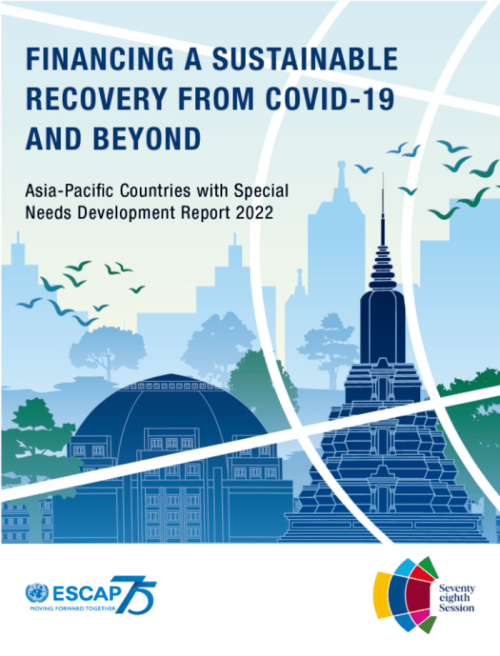
https://www.unescap.org/kp/2022/asia-pacific-countries-special-needs-dev...
The Report also examines policy options to mobilize financial resources in these countries for that purpose.
Collectively referred to as countries with special needs, these groups of countries were not on track to achieve the seventeen SDGs even before the COVID-19 outbreak. The prospects to do so have worsened due to the severe economic and social impacts of the pandemic. Moreover, the pre-existing financing gaps to attain the SDGs have increased significantly since the COVID-19 outbreak, owing to a combination of a decline in government revenue and expanded fiscal and monetary stimulus measures deployed to cushion its adverse impacts. Securing financing resources to recover from the pandemic in a way that is also aligned with the 2030 Agenda is therefore an urgent task for these countries.
This Report highlights that domestic tax revenue, debt and official development assistance will continue to be the main sources of development financing in many of these countries. Innovative instruments and mechanisms, such as thematic bonds and debt-for-climate swaps, also have the potential to finance sustainable development projects in these countries. As capacity, policy and regulatory gaps, as well as limited engagement and coordination with stakeholders, continue to be constraints in these countries, strengthened cooperation at the subregional, regional and global levels is essential to support these countries to complement their domestic efforts in mobilizing financing for development.










Add new comment